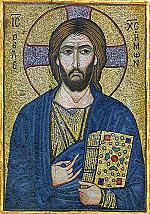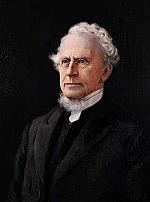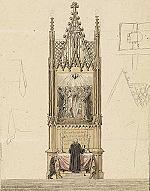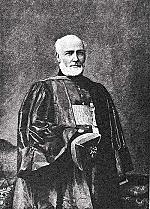A clash of titans
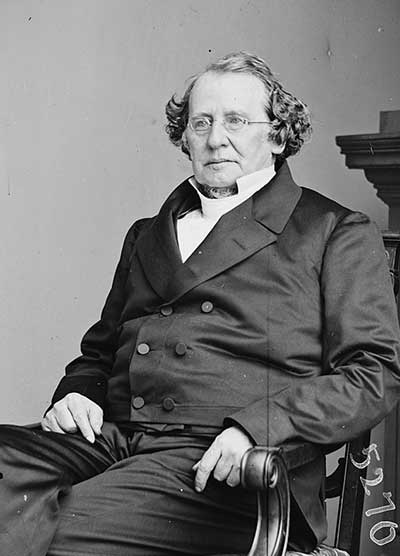
[Portrait of Charles Hodge created by the studio of Mathew Brady, Washington, D.C., 1865-1878.]
Charles Hodge of Princeton negatively reviewed John W. Nevin’s 1846 treatise on the Lord’s Supper, The Mystical Presence, at length in 1848, and Nevin quickly responded at even greater length. At issue was not only what is received in the Lord’s Supper, but the witness of the Reformed theological tradition.
It is, of course, admitted that a particular doctrine’s dying out of the faith of a church is, of itself, no sufficient evidence that it was not a genuine part of its original belief. This is too obvious to need remark. There is, however, a great difference between a doctrine’s being lost by a process of decay and by the process of growth. It is very possible that a particular opinion may be engrafted into a system, without having any logical or vital union with it, and is the more certain to be ejected, the more vigorous the growth and healthful the life of that system. The fundamental principles of Protestantism are the exclusive normal authority of Scripture, and justification by faith alone. If that system lives and grows it must throw off everything incompatible with those principles. It is the fact of this peculiar view of a mysterious influence of the glorified body of Christ, having ceased to live, taken in connection with its obvious incompatibility with other articles of the Reformed faith, that we urge as a collateral argument against its being a genuine portion of that great system of doctrine. According to the most authoritative standards of the Reformed Church, we receive the body and blood of Christ, as a sacrifice, just as Abraham and David received them, who ate of the same spiritual meat and drank of the same spiritual drink. The church is one, its life is one, its food is one, from Adam to the last of the redeemed.—Charles Hodge, in The Biblical Repertory and Princeton Review 20, 1848
According to [Hodge], the only union with Christ which the Reformed doctrine allows, is one that holds under a purely mental form between him and our souls—through the intervention of the Holy Spirit—exclusive altogether of his human life as such. Our relation to his body is at best remote and indirect. This is not in any way the bond and medium of our communication with his higher nature. When we are said to eat his flesh and drink his blood, the language must be taken as a violent catachresis; the meaning of which is simply that we have a very close spiritual conjunction with him by being made to experience in ourselves the influences of the same Holy Spirit that dwells also gloriously in his person. The idea of any participation, in the case of believers, in Christ’s human body, nature, or life, as such, is declared to be foreign entirely from the original faith of the Reformed Church. . . . The Reformed doctrine is wronged, however, in being made to rest in a theological mutilation here, which it never acknowledged in truth, but on the contrary took all pains to disown and disclaim.—John W. Nevin, The Mystical Presence and Other Writings on the Eucharist, 1966
By Charles Hodge and John W. Nevin
[Christian History originally published this article in Christian History Issue #155 in 2025]
Charles Hodge, in The Biblical Repertory and Princeton Review 20, 1848; John W. Nevin, The Mystical Presence and Other Writings on the Eucharist, 1966Next articles
“The power of a common life”
Nevin’s doctrine of the Eucharist in The Mystical Presence focuses on union with Christ and on the reality of the Incarnation
John Williamson Nevin“An undivided kingdom of God”
Mercerburg’s preeminent historian, Philip Schaff, fought for a united Christendom
Theodore Louis Trost



